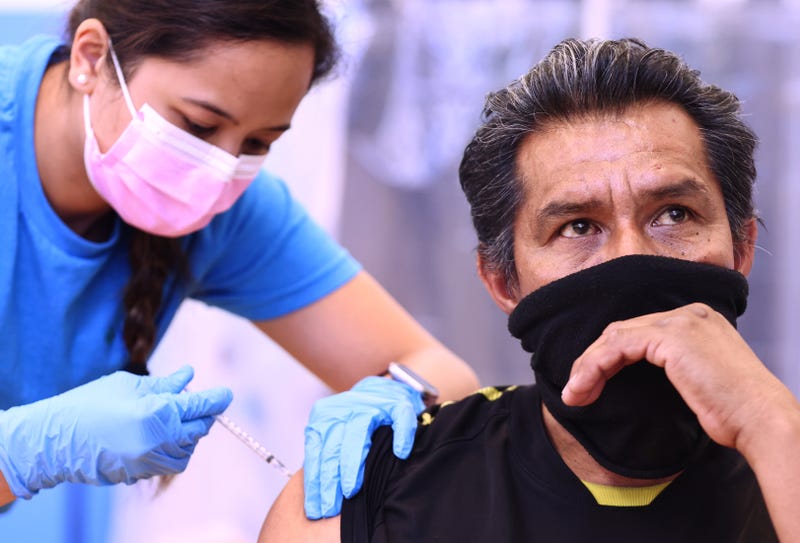
A new study from the U.S. Centers for Disease Control and Prevention shows that breakthrough COVID-19 infections among vaccinated people are more common due to the delta variant, but experts say that isn’t necessarily a surprise.
The study, published Friday, showed that vaccinated Americans in 13 jurisdictions, including Los Angeles County in California, accounted for 16% of COVID-19 deaths and 14% of hospitalizations among adults between June 20 and July 17. Vaccinated people accounted for 8% and 7%, respectively, between April 4 and June 19, when the delta variant wasn't nearly as widespread.

Vaccination rates also increased during those time frames, from 37% of adults in the first to 53% in the second. But more breakthrough infections alongside higher vaccination rates don't mean the coronavirus vaccines are no longer working as intended.
"It's kind of a paradox," Dr. William Schaffner, Professor of Preventive Medicine at Vanderbilt University School of Medicine, told KCBS Radio's Dan Mitchinson during Monday's "Ask an Expert" segment.
"You'll have a milder infection, but you won't be required to go into the hospital, except rarely. Once again, occasionally you can be (hospitalized) if you're immune-compromised, or if you're at an advanced age and have underlying illnesses. Some of those people will require hospitalization, even though they've been vaccinated."
In the study, over 60% of the breakthrough hospitalizations between June 20 and July 17 were among people older than the age of 65, as were 84% of the deaths. In all, vaccinated adults younger than 64 accounted for just 5.3% of all COVID-19 hospitalizations and 2.6% of all COVID-19 deaths during that same period.
The agency’s takeaway? Vaccines are still effective at preventing severe cases of COVID-19, even amid the spread of the delta variant.
"The vaccines were designed to keep us out of the hospital," Dr. Schaffner explained. "They reduce the likelihood that we will get a mild illness if we're exposed, but can't eliminate it. So these breakthrough infections are these, almost always, milder illnesses that don't require hospitalization."
Dr. Schaffner said it "hasn’t been studied with great care" if vaccinated people who sustain breakthrough infections have stronger immunity against subsequent COVID-19 infections, but those who are infected and then get vaccinated have "powerful protection going into the future."
Masks, when worn properly, reduce the likelihood the wearer spreads COVID-19 and can even "reduce the chance the virus gets through to you" for healthy individuals when there's nearby transmission, Dr. Schaffner said. At-home coronavirus tests are also a good indicator of whether or not you have a breakthrough infection, provided you test positive.
"It's on the negative side that those tests, and the companies will admit it, aren’t performing as well as anybody would like," Dr. Schaffner explained, adding that those concerned about a false negative should visit their doctor or their local health department to get "the traditional, nasal swab test."

